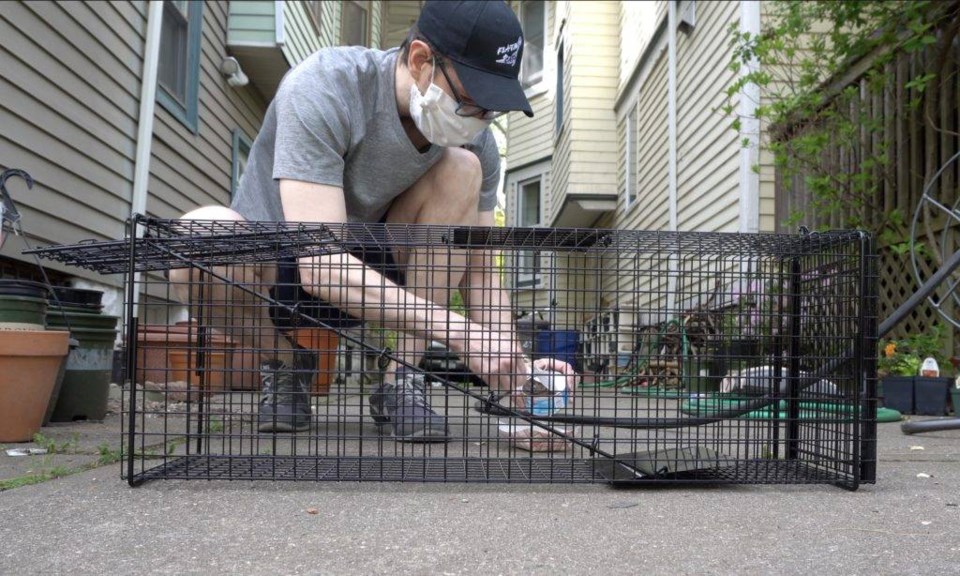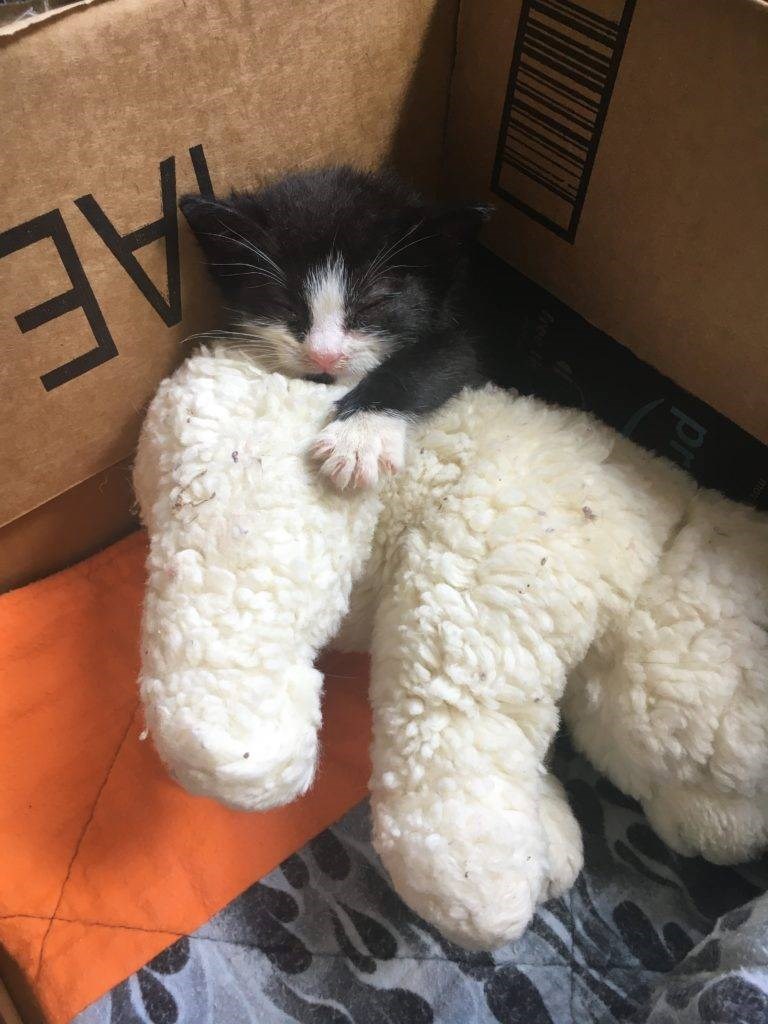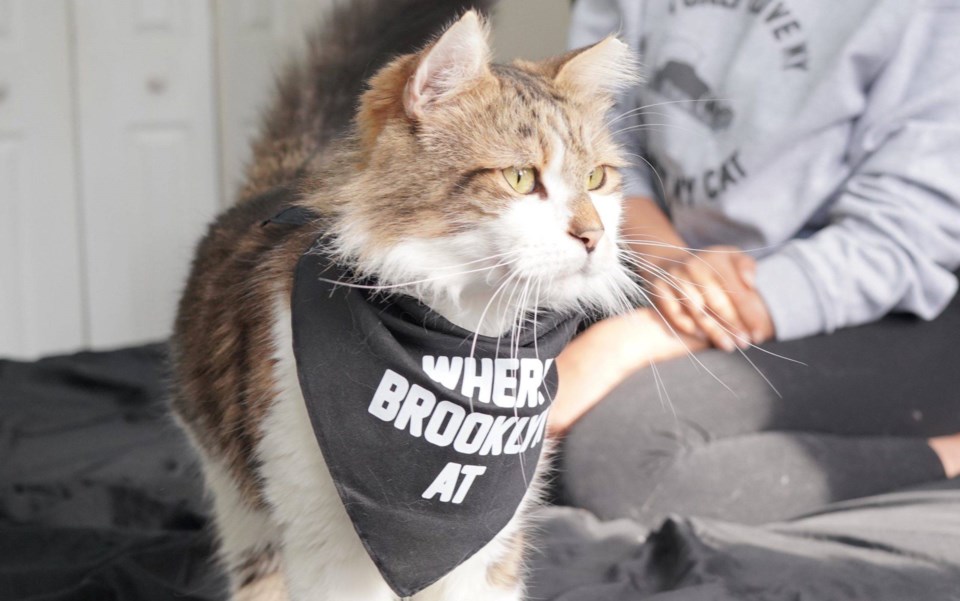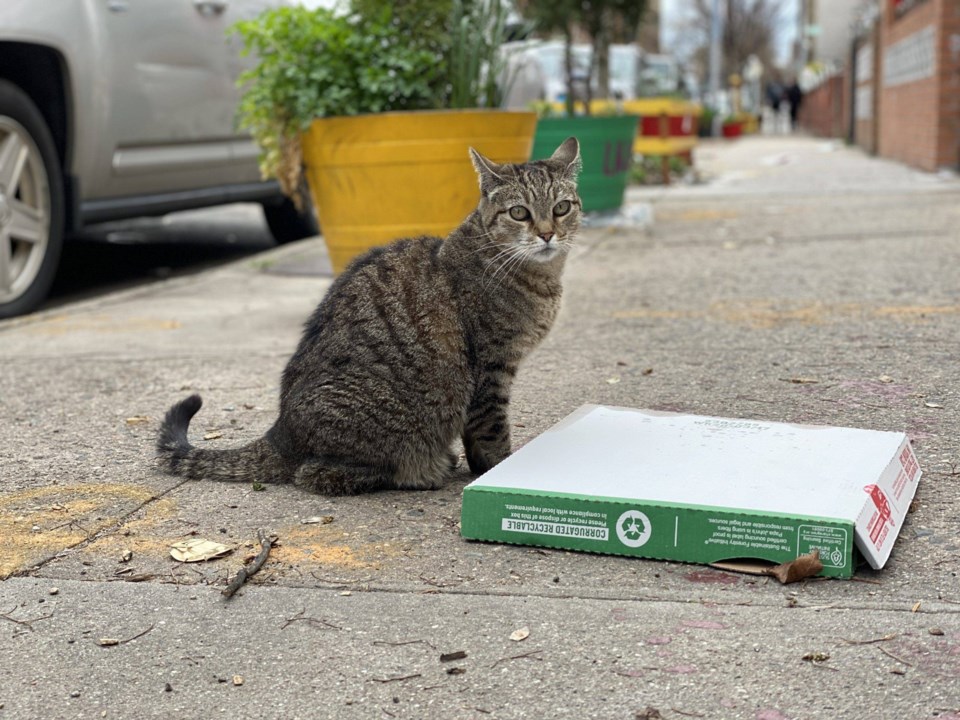Will Zweigart didn't realize the scale of the city's cat issue until he moved to Flatbush from Fort Greene.
Suddenly, he and his partner started seeing cats everywhere. A lifelong cat-lover, and problem-solver by nature, he started researching and discovered the reality: Hundreds of thousands of cats live on the streets of Brooklyn, and there is no sustainable solution in place.
"The presence of outdoor cats can be an indicator that the area is underserved in other key ways, which explains why we didn't see the cats before," he said.
He helped one cat, discovered a cat colony, learned about the practice of sterilizing and vaccinating outdoor cats, and in 2018 founded Flatbush Cats. The nonprofit -- which now has more than 340,000 YouTube followers -- is focused on reducing the outdoor cat population in Brooklyn.
Today, Zweigart, a strategist at an ad agency, is using his skills through Flatbush Cats to find solutions that could help NYC's cat population for good.
"New York City has had a cat overpopulation crisis for decades, people just don't talk about it or don't live in the neighorhoods where it exists," Zweigart said. "The scale of the problem is massive."
Pandemic cat population booms
At least half a million cats are estimated to live on the streets of NYC, with thousands euthanized yearly, and the pandemic has only exacerbated the problem. Due to state guidelines, many clinics that neutered street cats suspended the procedure in March 2020.
Adult street cats lived a hard life with a lot of unnecessary suffering, and a lot of the kittens born outside didn't survive, Zweigart said. "Cats don't belong outside here, they're not native to this area."

The process known as Trap, Neuter and Return (TNR) is one of the key tools in reducing the cat population at a neighborhood level. Any person can get certified to catch cats in their area, take them to a clinic to get neutered and vaccinated, and then release them back into the wild.
"If you see cats on your street, you are the best person to help them," Zweigart said.
The problem is not many people know how. Zweigart is on a mission to get as many people in Brooklyn and beyond certified and confident doing TNR.

When the ASPCA stopped doing its TNR trainings due to the pandemic, he asked if he could help them take the training online. Within a couple of months, they were up-and-running, and they've been hugely successful.
Last Saturday, Zweigart and the ASPCA trained more than 110 new TNR volunteers in a free two-hour online session. He estimates he's trained upwards of 500 new volunteers in the last few months, most of them from New York City.
He's also created a Facebook page where TNR-certified volunteers can share information, and is piloting a mentor-program in East Flatbush and Flatbush for the newly-certified.
"If we can train everyone to be a block captain in Brooklyn, and they have the resources to help, it starts to feel more manageable."
A bigger issue
Despite this win, Zweigart realized early on that neutering street cats and releasing them wasn't going to fix the problem for good.
"If our works starts with cats on the street, that's just like scooping buckets of water out the basement without turning off the faucet."

The core of the issue is making spay-and-neuter more accessible and affordable. Zweigart said it was no use training hundreds of people to TNR, when there were only limited affordable neutering appointments available. Even today, there is not one high-volume, low-cost spay-and-neuter clinic in Brooklyn.
Plus, people who own domestic house cats need to be able to access affordable neutering services. Unfixed domestic house cats are the source of the street cat colonies we see today, but getting your cat neutered at a private vet clinic can cost around $500.
"We realized this is a vicious cycle," Zweigart said. "We could rescue hundreds of the cats and the cycle will continue until we move upstream. So that's why our focus is on structural change: making it easier to volunteer in the community through TNR and making spay and neuter accessible for low-income neighbors in Brooklyn."
In the coming months, Flatbush Cats is planning to launch a large campaign to bring low-cost spay and neuter resources to Brooklyn, and it hopes city officials take note.

It's currently in the research phase, running numbers, gathering data and talking to "low income pet owners who deserve to have this option available."
The challenges include paying for real estate and vet staff in Brooklyn, but Flatbush Cats is determined.
"We're going to chase after it, because that's what necessary."




